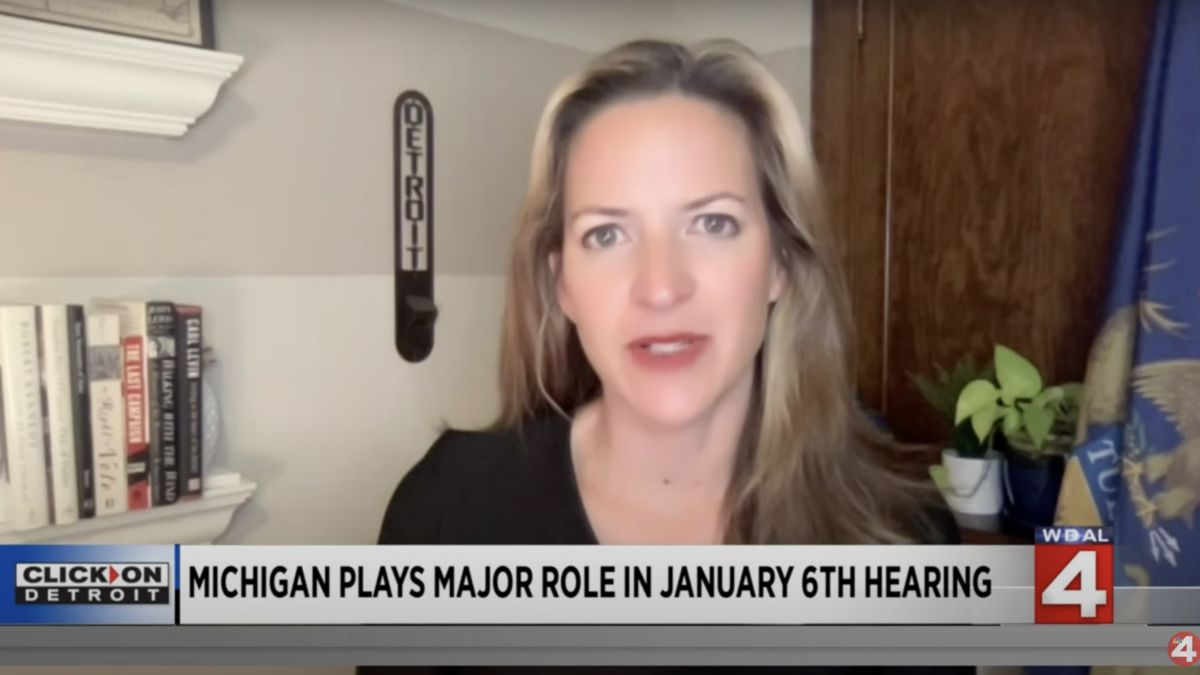
Even among the most extreme Democratic secretaries of state, Michigan’s Jocelyn Benson stands out.
A former employee of the left-wing Southern Poverty Law Center and Democratic National Committee, Benson’s a committed Democratic activist. And as Michigan’s secretary of state during the chaotic 2020 presidential election, Benson played a key role in making last-minute changes to election law to bolster Democratic voter turnout and swing Michigan in then-candidate Joe Biden’s favor.
When a $12 million grant from Mark Zuckerberg — “Zuckbucks” — was funneled to Michigan through the left-wing Center for Election Innovation and Research (ostensibly to help government officials administer elections), the money did not go to the state but to Benson’s nonprofit, the Michigan Center for Election Law and Administration. While supposedly nonpartisan, this nonprofit used nearly all of the $12 million grant to pay Democratic consulting firms for “election security.”
Benson also padded Michigan’s voter rolls right before the election, sending out automatic voter registration forms to all eligible Michigan citizens. As a result of the mailer, 114,000 people were added to the rolls. Benson has not escaped scrutiny for her behavior. She’s been the subject of multiple lawsuits for neglecting to clean Michigan’s voter rolls.
But most recently, Benson’s come under fire for issuing last-minute guidance restricting the ability of Michiganders to oversee their local elections. The Republican National Committee filed a lawsuit on Monday to stop Benson’s guidance from going into effect for the November general election. The lawsuit alleges that before Michigan’s Aug. 2 primary, Benson issued last-minute guidance that conflicts with Michigan election law regarding poll challengers.
Such guidance includes:
- Creating a last-minute new credential form for poll challengers, adding another barrier to citizen oversight.
- Creating an artificial deadline for when poll challengers can be appointed, i.e., challengers can be appointed up until Election Day, but not on the day itself. This means same-day election challengers could be rejected by election officials, despite Michigan law imposing no such requirement.
- Restricting which poll workers the challengers can communicate with (under Michigan law, election challengers can speak with any election inspector) and restricting the potential grounds for challenges.
- Prohibiting the possession of certain electronic devices — “capable of sending or receiving information” — in absentee ballot counting areas, despite no such prohibition in Michigan election law.
In issuing such last-minute guidance “without any formal rulemaking or process,” Benson violated Michigan’s Administrative Procedures Act by merely uploading the guidance onto the Michigan secretary of state’s website, the lawsuit alleges.
This isn’t the first time Benson has been accused of violating this state law. In March 2021, State Court of Claims Judge Christopher Murray overruled Benson’s instructions to Michigan election clerks to presume the accuracy of absentee ballot signatures because she did not go through the proper rule-making process when issuing the guidance.
Benson has a history of supporting restrictions on poll challengers, a tactic used to decrease citizen oversight into local elections and rig them in Democrats’ favor. But it’s not just happening in Michigan: The RNC has also sued North Carolina’s State Board of Elections for similar efforts to restrict poll watchers in violation of state election law.
“Volunteers across the political spectrum have a right to be poll challengers, and election laws exist to be followed — not subverted by Democrat officials at the last minute,” RNC Chairwoman Ronna McDaniel said in a press release.









